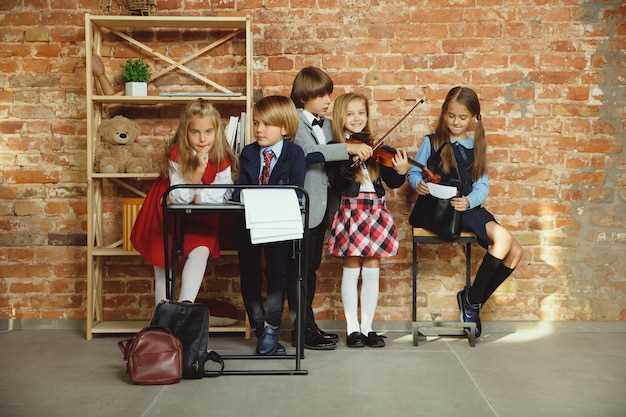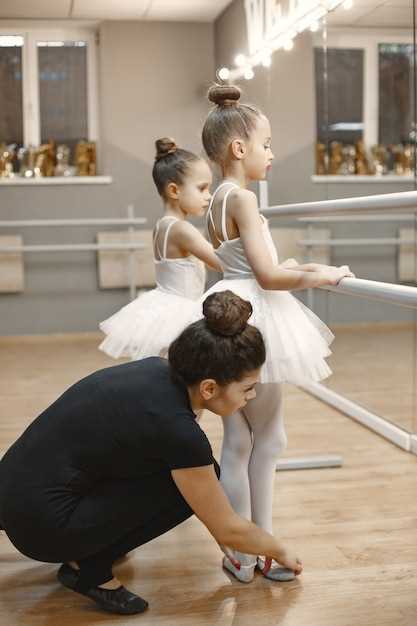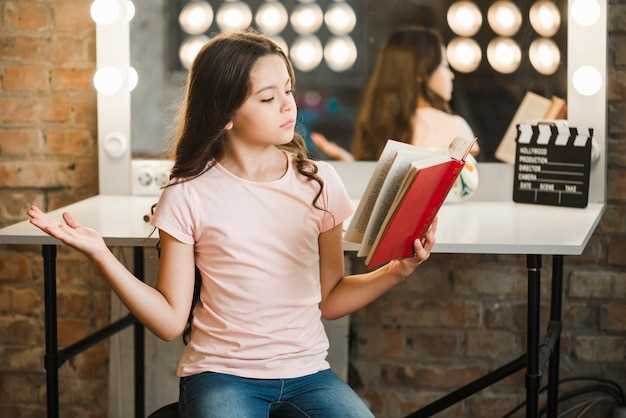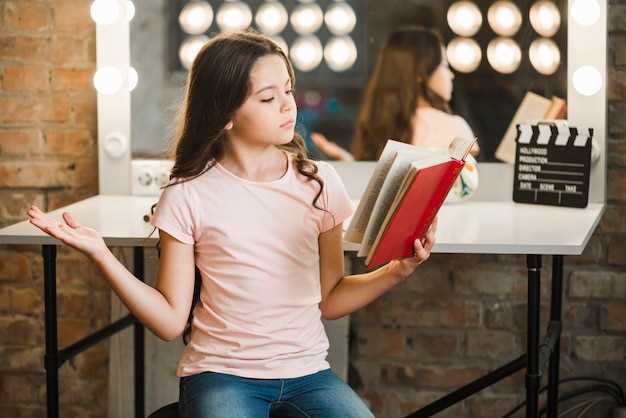The world of performing arts can be exhilarating yet daunting for young talents. Entering a competitive tryout setting often comes with its own set of challenges. Nerves can run high, and the pressure to shine is palpable. Equipping them with the right mindset and skills can make a significant difference. A few thoughtful strategies can pave the way for success, ensuring that enthusiasm and potential are showcased effectively.
Emotional support plays a vital role in this journey. Encouragement helps build confidence and resilience, allowing budding performers to tackle the experience head-on. Prioritizing rehearsal is crucial, as practice truly makes perfect. Each moment spent perfecting routines enhances both skill and assurance. However, it is equally important to balance practice with rest, so as not to burn out.
One cannot underestimate the value of preparation, not just in terms of physical ability but also mental readiness. The environment of a tryout can vary widely, from intimidating judges to unfamiliar studios. Seeking familiarity in these scenarios can alleviate anxiety. Engaging in mock tryouts with friends or family can help ease fears. With every practice, they learn to embrace their individuality and uniqueness.
Finally, wisdom in dressing for success cannot be overlooked. Outfits should be both comfortable and reflective of personal style. Attention to detail, like proper footwear, can impact performance. A polished appearance often instills a sense of professionalism and focus. Additionally, nourishing the body with healthy meals is just as critical to maintain energy levels. Every small decision contributes to the larger goal: realizing one’s potential and enjoying the experience.
Essential Tips for Dance Audition Prep

Getting ready for a performance assessment can be quite the adventure. It’s not just about the skills; mindset plays a crucial role. Building confidence is essential, as is embracing the experience. Every detail counts, from attire to practice routines.
All of these elements come together to shape a performer who is ready to shine on the big day, highlighting their unique style and personality while showcasing their dedication to the art.
First impressions matter in this competitive world. Choosing the right outfit can enhance stage presence and provide comfort during movement. Practicing regularly lends to smoother execution of routines. Additionally, warm-ups promote physical readiness and prevent injuries, ensuring physical capabilities are at their peak.
Having a positive attitude can shift perspectives during challenging moments. Visualizing success can also help build confidence, setting an optimistic tone before the event. Moreover, seeking feedback from teachers or peers creates a space for growth.
Remember to celebrate individuality; every dancer brings something unique to the table. Embrace the nerves, for they mean that excitement is present. These moments can create memories to cherish. Trust in preparation, enjoy the process, and let passion lead the way.
What Your Child Needs to Know

The journey to shine in a performance begins with understanding the process. It’s crucial to approach this endeavor with confidence and clarity. Knowing what lies ahead can make all the difference. Preparation is not just about practice; it encompasses a mindset too.
First, they must familiarize themselves with the expectations of the event. Being aware of the format can alleviate anxiety. Understanding the importance of being punctual is vital. Arriving early shows commitment and professionalism, which leaves a good impression.
Next, focusing on technique is key. Mastering the basic movements will serve as a solid foundation. Additionally, expressing oneself through dance is equally important. Creativity can set one apart in a sea of talent.
Furthermore, mental readiness plays a significant role in overall performance. Encouraging a positive attitude and visualizing success can help conquer jitters. Remind them that every experience is a learning opportunity, regardless of the outcome. Engaging with others in similar situations fosters camaraderie and support.
Lastly, after the performance, reflection is essential. Discussing what went well and what can be improved builds resilience. Emphasizing the joy of sharing their passion is fundamental too. Always celebrate the effort and bravery involved in stepping onto that stage.
Understanding the Audition Process
Participating in an audition can be an exhilarating yet nerve-wracking experience. It’s a gateway to new opportunities. Each audition has unique characteristics and requirements. Familiarity with the overall structure can significantly ease anxiety. Knowing what to expect allows young performers to focus on their craft.
Auditions usually follow a specific format. Here’s a general outline:
- Registration: Arriving early to check in is crucial.
- Warm-Up: Engaging in physical activity helps in generating energy.
- Presentation: Individuals or groups showcase their skills to the panel.
- Feedback: Receiving constructive criticism is a valuable part of learning.
The registration process is often the first point of contact and sets the stage for the experience ahead. It’s essential to arrive on time, as punctuality reflects professionalism, and it helps in making a positive first impression. Following registration, participants typically engage in a warm-up session to prepare their bodies and minds. This warm-up is not merely a routine; it’s a chance to build camaraderie and ease tensions.
The heart of the audition lies in the performance itself. During this segment, candidates demonstrate their abilities through a routine, solo, or improvisation in front of a panel of judges or choreographers. This moment is both exhilarating and intimidating, demanding focus and confidence. Finally, many auditions conclude with a feedback session, offering insights into areas for improvement while also celebrating strengths.
Understanding this framework can transform the audition into a more manageable experience. Emphasizing preparation and a positive mindset contributes significantly to a successful outcome. Ultimately, each audition serves as a valuable learning experience, contributing to the growth of every performer.
Common Expectations During Auditions
When stepping into the audition room, it is crucial to understand what awaits. This experience can be both thrilling and nerve-wracking. Expectations can vary widely based on the type of event and the specific requirements set by the panel. Being aware of these common elements helps in feeling more at ease on the day.
- Arrive early to allow time to warm up.
- Dress appropriately in comfortable and suitable attire.
- Bring a headshot and resume, if required.
- Be prepared to perform a routine and take direction.
The atmosphere can often be competitive, as various candidates showcase their skills; however, it is important to remember that each audition is an opportunity to learn, grow, and, most importantly, express oneself. Engaging with the judges respectfully can make a significant difference. Confidence matters, but it’s also about showing a willingness to learn. Ultimately, the goal is to leave a lasting impression.
- Maintain a positive attitude throughout the process.
- Be ready for constructive feedback after your performance.
- Listen carefully to the instructions given.
- Stay focused and remain calm, no matter the situation.
Being aware of these expectations can transform anticipation into an empowered presence that resonates with the audition panel, making the experience not just a test, but a celebration of talent and dedication.
Practical Steps for Effective Preparation

Getting ready for a performance opportunity involves more than just practice. It’s about building confidence and fostering creativity. The journey encompasses physical and mental readiness. Kids need both the skills to shine and the resilience to handle the experience.
First, ensure they have a solid grasp of the required techniques. Regular classes can enhance their abilities significantly. Encourage them to learn new routines and styles.
Additionally, focus on wellness through proper nutrition and hydration. Sleep plays a crucial role in maintaining energy levels.
Setting realistic expectations is vital. Performance can be unpredictable. Remind them that it’s about the experience and personal growth.
As the day approaches, help them visualize success. This mental rehearsal can help ease nerves. Moreover, familiarize them with the audition space if possible.
Ultimately, preparing for such events is a holistic process that combines skill development, emotional strength, and physical well-being, creating a well-rounded performer ready to take on any challenge with poise and enthusiasm.
Create a Dance Practice Routine
Establishing a consistent practice plan is paramount for any aspiring performer. It helps build confidence and enhances skills over time. A structured schedule provides a roadmap to progress. Each session should be thoughtfully organized to encompass various elements of performance training.
Start by identifying clear objectives for each practice period. Whether it’s perfecting specific steps or focusing on musicality, clarity brings focus. Regular intervals of practice can also help reinforce learning. Short, daily sessions often yield better results than sporadic, lengthy ones.
Incorporating a variety of activities is crucial, too. Utilize warm-ups, technique drills, and choreography work, along with moments for improvisation. This diversity maintains enthusiasm and combats monotony in the routine. When practiced consistently, skills develop holistically, leading to remarkable transformation.
| Day | Focus Area | Duration |
|---|---|---|
| Monday | Warm-up & Flexibility | 30 minutes |
| Wednesday | Technique Drills | 40 minutes |
| Friday | Choreography Practice | 60 minutes |
| Saturday | Improvisation & Free Style | 30 minutes |
Ultimately, consistency is the key; it’s about creating a qualitative rhythm that fosters growth. Celebrate small victories during this journey, as they contribute to a broader foundation. By embracing a well-rounded routine, an individual can significantly enhance their performance readiness.
Plan the Perfect Audition Outfit
Choosing the right attire is crucial for making a lasting impression. The outfit should reflect both comfort and style. Think of it as a way to showcase personality. A well-chosen ensemble can enhance confidence. Consider the details carefully to ensure a polished appearance.
First, prioritize comfort. Movement is key, and restrictive clothing can be a hindrance. Look for breathable fabrics that allow for ease of motion. Avoid any accessories that could become a distraction. Simple is often better when it comes to ensemble choices.
- Choose fitted clothing that accentuates lines and shapes.
- Opt for supportive footwear that fits the style of the performance.
- Incorporate layers to adapt to varying temperatures.
- Consider the color scheme–select shades that enhance skin tone.
Furthermore, while it’s important to be versatile, avoid overly flashy designs that could draw attention away from talent. Aim for an outfit that blends well with the specific style being showcased, as this will help the judges focus on the performance rather than outfit choice.
- Research the audition requirements for any specific clothing guidelines.
- Test the outfit during practice sessions to ensure perfect fit.
- Involve your young performer in the selection process for engagement.
Ultimately, a carefully selected outfit can transform how one feels on stage. This not only aids in self-expression but can also significantly influence overall performance. A balance of style, comfort, and confidence will lead to a memorable presentation.
Checklist for a Successful Audition Day
The day of an audition can be both exciting and nerve-wracking. Proper organization makes a significant difference. Each element matters – from attire to mindset. Little details count in creating a confident atmosphere. Ensuring readiness can enhance performance potential.
Here’s a handy list to streamline the process:
| Item | Description |
|---|---|
| Comfortable Attire | Choose clothing that allows freedom of movement and is appropriate. |
| Water Bottle | Stay hydrated to maintain energy and focus throughout the day. |
| Healthy Snacks | Pack light snacks to keep energy levels consistent. |
| Warm-Up Routine | Have a personal warm-up sequence to prepare both body and mind. |
| Positive Mindset | Encourage affirmations or visualizations to boost confidence. |
By keeping these essentials in mind, readiness becomes second nature; each choice contributes to success. Embrace the opportunity, and remember, everyone is rooting for you!
Items to Bring Along
When getting ready for an important performance opportunity, it’s crucial to have the right belongings. Attention to detail makes a significant difference. Being well-prepared can ease anxiety and allow talent to shine. Having necessary supplies on hand is not just practical; it can enhance confidence.
First, pack comfortable clothing that allows for full range of motion. Proper footwear is also paramount; it should support feet well during practice. Personal water bottles are invaluable for staying hydrated throughout the event. Additional snacks help maintain energy and focus.
| Item | Purpose |
|---|---|
| Clothing | To allow freedom of movement and comfort during practice. |
| Shoes | To provide stability and prevent injuries while performing. |
| Water Bottle | To stay hydrated and retain energy levels. |
| Snacks | To maintain energy and focus throughout lengthy sessions. |
| Extra Supplies | Such as hair ties, makeup, or a towel for touch-ups. |
In addition, consider extra items that could be beneficial, like hair accessories or personal hygiene products. Such preparations may seem trivial but can make a substantial difference. Each element contributes to creating a positive experience and leaves a lasting impression. Ultimately, being well-equipped allows performers to focus entirely on their skills rather than logistical concerns.
Video:
DANCE AUDITION ADVICE: STUDENT EDITION | DANCELOOK
DANCE AUDITION ADVICE: STUDENT EDITION | DANCELOOK by Dancelook 45,376 views 6 years ago 6 minutes, 16 seconds
Q&A:
What are the key steps to prepare my child for a dance audition?
To prepare your child for a dance audition, start by ensuring they have the right dance attire and shoes that fit well. Schedule regular practice sessions to improve their skills and confidence. Discuss the audition process with them so they know what to expect, including how to present themselves and follow directions. Encourage them to perform in front of friends or family to help ease any nerves. Lastly, remind them to have fun and enjoy the experience, as a positive attitude can make a great impression.
How can I help my child manage anxiety before a dance audition?
Anxiety before an audition is common, but there are ways to help your child cope. Start by talking openly about their feelings; often, just acknowledging their worries can help reduce them. Teach them relaxation techniques, such as deep breathing exercises or visualization, where they can imagine themselves succeeding. Encourage them to approach the audition as an opportunity to share their passion rather than a test of worth. Additionally, help them create a positive mantra to repeat to themselves before stepping on stage, like “I am prepared and I will shine.”
What should my child wear to a dance audition?
The attire for a dance audition typically depends on the dance style being performed, but generally, it is best to wear form-fitting clothing that allows the judges to see the dancer’s lines and movements clearly. For ballet auditions, a leotard and tights are commonly worn. For modern or jazz, comfortable dancewear such as leggings and a fitted top are suitable. Make sure the shoes are appropriate for the dance style. It’s also essential to avoid overly flashy clothing; simplicity is preferred to showcase your child’s talent rather than their outfit.
Is it important for my child to learn choreography before the audition?
Yes, learning the choreography ahead of time can significantly boost your child’s confidence during the audition. Many auditions will involve a set piece of choreography that participants are required to learn. Being prepared will allow them to focus on performance quality and expression rather than just trying to recall the steps. If the audition doesn’t have a pre-set routine, encourage your child to practice improvisation and freestyling, as being adaptable is a valuable skill in the dance world.
How can I motivate my child to stay committed to dance leading up to the audition?
To motivate your child, focus on their passions and the joy they find in dance. Set specific, achievable goals leading up to the audition, such as improving certain dance techniques or mastering a particular routine. Celebrate their progress to maintain enthusiasm. Additionally, try to connect them with inspirational dance role models—whether through videos, live performances, or dance workshops. Lastly, reassure them that hard work pays off and emphasize the importance of learning and growth rather than just the outcome of the audition.
What should I focus on when helping my child prepare for a dance audition?
When preparing your child for a dance audition, it’s essential to focus on several key areas. Firstly, ensure your child has a good understanding of the audition requirements, such as specific dance styles or choreography they should prepare. Practicing these skills regularly will build their confidence. Secondly, encourage them to work on their performance quality, including expression and stage presence, as these can set them apart from other dancers. Additionally, physical preparation is crucial – ensure they are well-rested, hydrated, and have eaten a nutritious meal before the audition. Lastly, it’s important to provide emotional support; reassure them that auditions can be competitive and that it’s okay to experience nervousness. A positive mindset can significantly enhance their performance.
How can I help my child deal with audition anxiety?
Dealing with audition anxiety is common for many young dancers, and as a parent, you can play a pivotal role in helping them manage their nerves. Start by normalizing their feelings; let them know it’s okay to feel anxious before an audition and that many others experience the same emotions. Encourage them to practice deep breathing exercises or visualization techniques, where they imagine themselves performing confidently and successfully. It may also help to simulate the audition environment at home, allowing your child to practice in front of friends or family. This familiarizes them with the experience and builds confidence. Additionally, remind them that the audition is just one opportunity and doesn’t define their worth as a dancer. Lastly, focus on the process rather than the outcome; celebrate their effort and preparation rather than the final result, which can alleviate some pressure.
